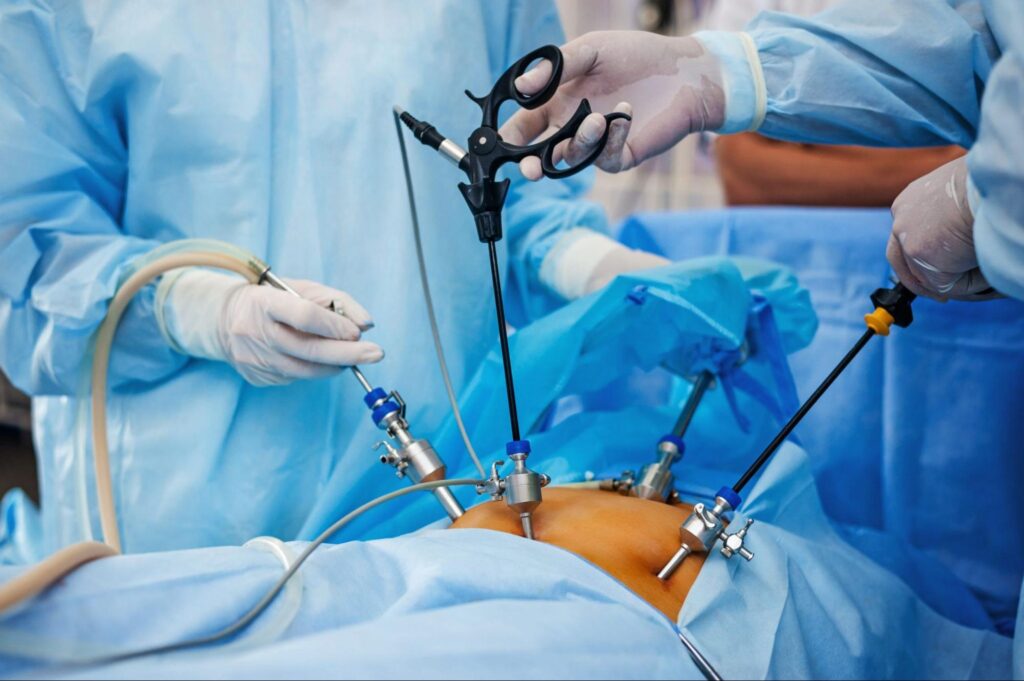When faced with the need for surgery, it’s completely normal to feel overwhelmed by the options available. One of the most popular choices today is laparoscopic surgery, a minimally invasive procedure that comes with numerous benefits, such as shorter recovery times and smaller scars. But how can you decide if it’s the right choice for you?
Every surgical decision is personal and depends on various factors, including your health condition and recovery expectations. If you’re thinking about laparoscopic surgery, continue reading to learn about the key aspects to consider and why it’s crucial to consult a skilled surgeon to make the best decision for your health.
What is Laparoscopic Surgery?
Laparoscopic surgery, often called keyhole surgery, involves making small incisions through which a surgeon can insert a camera and specialised tools to carry out the procedure. This method is commonly used to treat conditions like gallbladder issues, hernias, and appendicitis, as well as for diagnostic purposes.
This technique offers significant advantages over traditional open surgery, such as reduced pain, quicker healing, and minimal scarring. However, like any medical procedure, it may not be suitable for everyone.
Factors to Consider Before Opting for Laparoscopic Surgery
Determining whether laparoscopic surgery is right for you requires evaluating several important factors:
1. The Nature of Your Condition
Not all conditions can be treated laparoscopically. This approach is typically used for procedures involving the abdomen, pelvis, or chest, such as:
- Removing the gallbladder (cholecystectomy)
- Repairing hernias
- Treating endometriosis or ectopic pregnancies
- Performing weight-loss surgeries (bariatric surgery)
However, some conditions may necessitate open surgery, particularly if they involve complex anatomy or significant tissue damage. Your surgeon will evaluate whether laparoscopic surgery is a viable option based on your diagnosis.
2. Potential Risks and Complications
While laparoscopic surgery is generally considered safe, it does carry some risks. Potential complications include:
- Infection at the incision sites
- Internal bleeding
- Damage to surrounding organs
- Adverse reactions to anaesthesia
It’s important to discuss these risks with your surgeon to ensure you fully understand how they apply to your specific situation. If you have existing health issues such as heart disease or severe obesity, you may need to take extra precautions.
3. Your Overall Health
Your overall health is a key factor in determining if you’re a good candidate for laparoscopic surgery. Consider the following:
- Body Weight: While many patients who are overweight find laparoscopic surgery beneficial, extreme obesity can sometimes complicate the procedure.
- Previous Surgeries: Scar tissue from earlier surgeries might restrict the surgeon’s ability to perform the procedure laparoscopically.
- Underlying Conditions: Chronic conditions like diabetes or blood clotting disorders may need special attention before and after the surgery.
4. Recovery Expectations
One of the significant advantages of laparoscopic surgery is the faster recovery time. Most patients can resume their daily activities within a week or two, compared to several weeks for open surgery.
However, recovery times can differ based on the specific procedure, your age, and overall health. If you have concerns about the recovery period, talk to your surgeon about what to realistically expect.
5. Your Surgeon’s Expertise
The success of laparoscopic surgery heavily relies on the skill and experience of your surgeon. Seek out a surgeon who specialises in laparoscopic techniques and has a solid track record. Don’t hesitate to inquire about their qualifications and experience during your consultation.
When to Consult a Surgeon
If you’re uncertain whether laparoscopic surgery is the right choice for you, the best course of action is to schedule a consultation with a qualified surgeon. They will:
- Review your medical history and conduct any necessary tests.
- Provide a detailed explanation of the procedure, including its benefits and risks.
- Assist you in evaluating your options, considering both laparoscopic and traditional methods.
Early consultation provides the opportunity for any necessary pre-surgery preparations, such as adjusting your diet or changing medications.
Benefits of Laparoscopic Surgery
If you qualify, laparoscopic surgery presents several significant advantages:
- Minimal Scarring: Small incisions lead to less noticeable scars.
- Faster Recovery: Patients experience shorter hospital stays and can return to their daily routines more quickly.
- Reduced Pain: The smaller incisions result in less discomfort after the procedure.
- Lower Risk of Complications: This minimally invasive technique generally involves less blood loss and a decreased chance of infection.
Is Laparoscopic Surgery Worth It?
For many individuals, the advantages of laparoscopic surgery outweigh the potential risks, especially regarding comfort and recovery time. However, each patient is different, and what may be beneficial for one person might not be the best option for another.
By understanding the factors that determine your eligibility for laparoscopic surgery and consulting with a skilled surgeon, you can make a well-informed decision that aligns with your health objectives.
Ready to Take the Next Step?
At LS Lee Surgery, we are committed to providing patient-centred care and assisting you in exploring your surgical options with confidence. Whether you are considering laparoscopic surgery for the first time or looking for a second opinion, our experienced team is here to support you throughout the process.
Schedule a consultation with LS Lee Surgery today, and let us help you make the best decision for your health and recovery.







